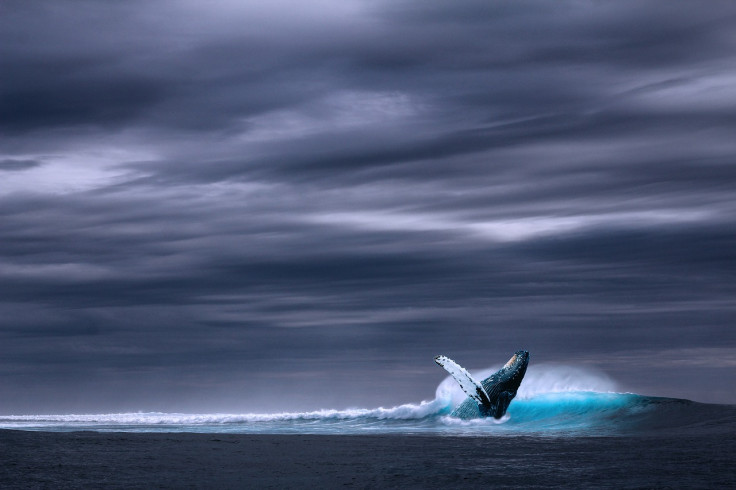Blue Whales Going Silent May Be A Sign of Worse Things to Come: Here's Why You Should Be Worried
Blue whale silence may signal worsening ocean health, researchers warn

Blue whales, the largest animals on the planet, are falling eerily silent across vast stretches of the Pacific and Southern Oceans. Scientists monitoring their acoustic behaviour have reported a sharp drop in the whales' distinctive low-frequency calls, a shift that is prompting concern among marine researchers.
The disappearance of these vocalisations is more than an acoustic anomaly. It may indicate a deeper environmental crisis, particularly linked to declining food supplies and increased human activity disrupting ocean ecosystems.
What is Causing the Silence?
A six-year acoustic study off the coast of California, focused on the 2015 marine heatwave known as 'the Blob,' found that blue whale vocalisations dropped by nearly 40 per cent. The heatwave led to a collapse in krill and anchovy populations, key food sources for blue whales, and triggered algal blooms that further destabilised the marine food chain.
Veteran oceanographer John Ryan noted that the whales' silence could reflect extreme nutritional stress. 'It's like trying to sing while you're starving,' he told National Geographic. With fewer prey available, whales are believed to be conserving energy by reducing their calls, which are essential for mating, navigation and social interaction.
Because blue whales reproduce slowly and remain classified as endangered due to historical whaling, any added pressure on their ability to feed or communicate poses serious risks to population recovery, Green Matters reported.
The International Whaling Commission has also warned that even moderate disruptions to blue whale habitats could have outsized impacts due to their slow recovery rate.
A Broader Ecological Warning
The trend is not confined to North America. Researchers have observed similar declines in vocal activity in the South Pacific, Southern Ocean and coastal regions near Argentina, according to marine studies cited by Brewminate. Scientists believe these changes reflect deteriorating ocean conditions on a global scale.
Another contributing factor is underwater noise pollution. Human activity such as commercial shipping, naval sonar and offshore construction has introduced persistent high-decibel noise into marine environments, according to the Oceans Research Institute. Unlike humans, whales do not compete with noise by raising their voices. Instead, they may go silent or flee the area altogether.
This behaviour has been linked to increased stress, reduced feeding and, in extreme cases, mass strandings, particularly in areas where sonar testing is active. Marine scientists warn that such cumulative disturbances may be weakening already fragile ecosystems.

Why the Silence of Blue Whales Signals Trouble
While whale beachings often make headlines, experts say that reduced vocal activity may be an even more urgent warning sign. Silence may serve as a barometer for both environmental degradation and the direct impact of human interference in the oceans.
Blue whales are more than just majestic creatures — they serve as vital indicators of ocean health. When they struggle, it's often a sign of larger environmental problems, including climate change, pollution, and habitat degradation.
Marine heatwaves such as 'the Blob' have disrupted ocean food chains. At the same time, rising levels of human-made noise from ships and sonar are interfering with their ability to communicate. This noise pollution can force whales to reduce or even stop vocalising, affecting their ability to mate, care for young, and navigate.
As blue whale communication breaks down, their survival is put at risk — and with them, the balance of the marine ecosystem. A decline in their population could trigger wider consequences for other species and the ocean's overall stability.
© Copyright IBTimes 2025. All rights reserved.





















